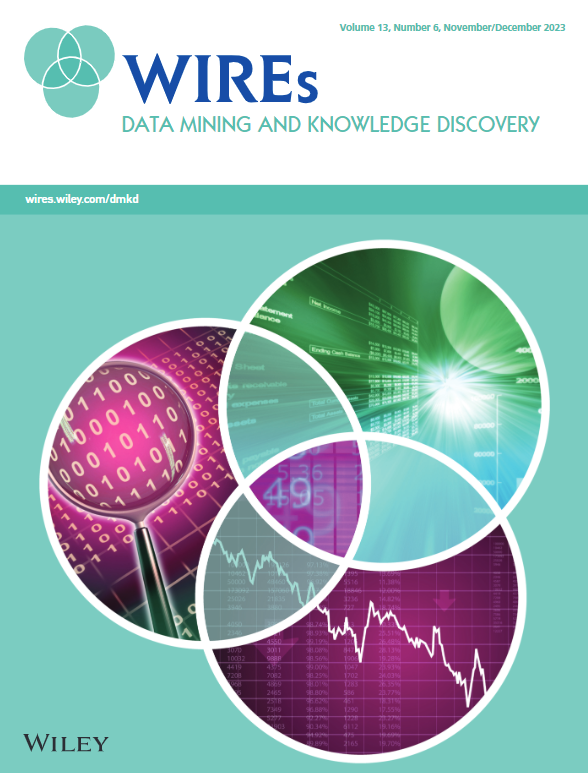恐怖主义相关信息的开源情报提取:综述
IF 11.7
2区 计算机科学
Q1 COMPUTER SCIENCE, ARTIFICIAL INTELLIGENCE
Wiley Interdisciplinary Reviews-Data Mining and Knowledge Discovery
Pub Date : 2022-07-07
DOI:10.1002/widm.1473
引用次数: 3
摘要
在当今这个时代,世界上很大一部分人都被广泛使用的互联网和社交媒体所淹没,恐怖分子发现这是一个执行他们邪恶计划的潜在机会。他们有一个合适的媒介来接触他们的目标,传播宣传,传播培训内容,虚拟操作,并进一步实现他们的目标。为了限制此类活动,需要对恐怖主义背景下的互联网信息进行分析,以便将其引导到打击恐怖主义的适当措施中。开源情报(OSINT)为这个问题提供了一个合适的解决方案,它是一门新兴的学科,通过有效地利用互联网上可公开访问的信息源来提取情报。OSINT提取的过程大致分为三个阶段(i)数据获取,(ii)数据丰富和(iii)知识推理。在恐怖主义背景下,研究人员在这三个阶段做出了显著的贡献。然而,尚未发现将这些研究贡献描述为集成的情报提取工作流程的全面审查。本文介绍了OSINT中最新的评论,反映了如何将各种最先进的工具和技术应用于从可公开访问的来源提取与恐怖主义相关的文本信息。各种基于数据挖掘和文本分析的技术,即自然语言处理、机器学习和深度学习,已经被用于提取和评估文本数据。此外,在本文的最后,我们讨论了在OSINT提取的不同阶段观察到的挑战和差距。本文章由计算机程序翻译,如有差异,请以英文原文为准。

Open source intelligence extraction for terrorism‐related information: A review
In this contemporary era, where a large part of the world population is deluged by extensive use of the internet and social media, terrorists have found it a potential opportunity to execute their vicious plans. They have got a befitting medium to reach out to their targets to spread propaganda, disseminate training content, operate virtually, and further their goals. To restrain such activities, information over the internet in context of terrorism needs to be analyzed to channel it to appropriate measures in combating terrorism. Open Source Intelligence (OSINT) accounts for a felicitous solution to this problem, which is an emerging discipline of leveraging publicly accessible sources of information over the internet by effectively utilizing it to extract intelligence. The process of OSINT extraction is broadly observed to be in three phases (i) Data Acquisition, (ii) Data Enrichment, and (iii) Knowledge Inference. In the context of terrorism, researchers have given noticeable contributions in compliance with these three phases. However, a comprehensive review that delineates these research contributions into an integrated workflow of intelligence extraction has not been found. The paper presents the most current review in OSINT, reflecting how the various state‐of‐the‐art tools and techniques can be applied in extracting terrorism‐related textual information from publicly accessible sources. Various data mining and text analysis‐based techniques, that is, natural language processing, machine learning, and deep learning have been reviewed to extract and evaluate textual data. Additionally, towards the end of the paper, we discuss challenges and gaps observed in different phases of OSINT extraction.
求助全文
通过发布文献求助,成功后即可免费获取论文全文。
去求助
来源期刊

Wiley Interdisciplinary Reviews-Data Mining and Knowledge Discovery
COMPUTER SCIENCE, ARTIFICIAL INTELLIGENCE-COMPUTER SCIENCE, THEORY & METHODS
CiteScore
22.70
自引率
2.60%
发文量
39
审稿时长
>12 weeks
期刊介绍:
The goals of Wiley Interdisciplinary Reviews-Data Mining and Knowledge Discovery (WIREs DMKD) are multifaceted. Firstly, the journal aims to provide a comprehensive overview of the current state of data mining and knowledge discovery by featuring ongoing reviews authored by leading researchers. Secondly, it seeks to highlight the interdisciplinary nature of the field by presenting articles from diverse perspectives, covering various application areas such as technology, business, healthcare, education, government, society, and culture. Thirdly, WIREs DMKD endeavors to keep pace with the rapid advancements in data mining and knowledge discovery through regular content updates. Lastly, the journal strives to promote active engagement in the field by presenting its accomplishments and challenges in an accessible manner to a broad audience. The content of WIREs DMKD is intended to benefit upper-level undergraduate and postgraduate students, teaching and research professors in academic programs, as well as scientists and research managers in industry.
 求助内容:
求助内容: 应助结果提醒方式:
应助结果提醒方式:


